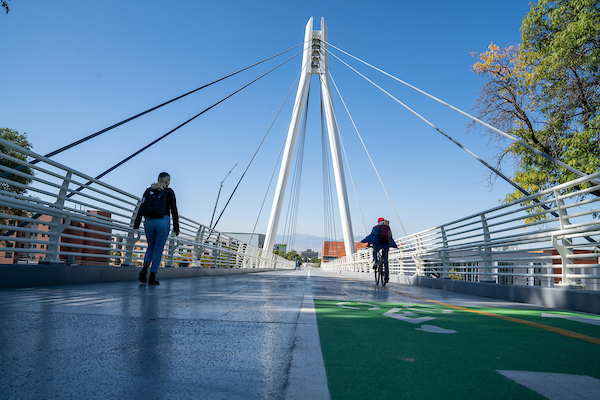Native Research Methods: Creating Cross-Campus Pathways for Ethical Research with Native Communities

Building from Native Research Methods, this proposal seeks to catalyze and lay the groundwork for ongoing structures of support for ethical and reciprocal research with Native peoples and communities across campus. This proposal aligns with the four strategic goals of the university.
This proposal has three objectives:
• Build a network of researchers at the University of Utah who are committed to using Native Research Methods to ethically engage with Native communities (goal 1: develop and transfer new knowledge)
• Catalyze connections between efforts on main campus ( Working With Native Communities Certificate created by Dr. Benally and Indigenous Communication Working Group led by Dr. Endres) and the health campus (Tribal Rural Urban Underserved Medical Education Certificate led by Dr. Sandweiss and Native American Summer Research Internship led by Dr. Holsti) to create training programs for the ethical conduct of partnerships with Native communities (goal 2: promote student success to transform lives)
• Establish research-informed best practices for creating structural support for reciprocal collaborations between Native communities and University researchers across healthcare, educational, and environmental contexts (goal 3: engage communities to improve health and quality of life)
This proposal will accomplish these objectives by:
• Offering networking and learning opportunities through a speaker/workshop/training series
• Facilitating conversation between main campus and the health campus about formal training models and research opportunities
• Creating a report that lays out tangible structures of support and a pathway for implementing research projects in support of Native communities
• Seeking opportunities for external funding to continue the objectives (NIH, NSF, Spencer Foundation)
These objectives work to ensure the long-term viability of the university (goal 4) through engaging improvement practices across the university.
Current Status
2025-02-04
This 1U4U Project focused on building structures of support for ethical research with Native communities. The project had three objectives: 1) build a network of researchers across Heath and Main campuses; 2) build training opportunities for using Native Research Methods; and 3) identify research-based best practices for structural university support for reciprocal research collaborations between Native communities and the U. Our project succeeded in all three objectives. Through a series of networking events, symposia, and workshops, we built a strong network of faculty, staff, and students, some of whom are already experts and many of whom are seeking support. Participants consistently expressed the need for more campus-wide training and support for ethically collaborating with Native communities. The project raised awareness about the certificate programs currently available, identified gaps in training, and developed a longer-term plan for more research-based training that highlights Native sovereignty and community-identified research needs. The project team identified campus-wide structures of support that would allow Utah to be a leader in Native Research Methods research, training, and practice through an institute or center. The team applied for one Spencer Foundation grant and is actively seeking other opportunities to continue its work.
Collaborators
DANIELLE ENDRES
College of Humanities
Communication
Project Owner
CYNTHIA BENALLY
College of Education
Education, Culture & Society
MAIJA HOLSTI
School of Medicine
Pediatric Administration
DAVID SANDWEISS
School of Medicine
Pediatric Administration
Project Info
Funded Project Amount$30K
Keywords
Native Research Methods, Native Communities, Native American & Indigenous Studies, Education, Healthcare, Environmental Issues, Participatory Methods, Community Engaged Research
Project Status
Funded 2023
Poster
View poster (pdf)
